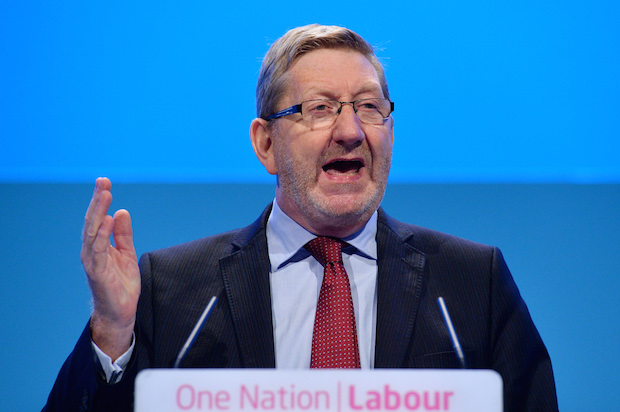Can Labour’s links with trade unions survive the leadership contest? This morning, Harriet Harman will outline in a speech at Labour HQ how the new party leader will be elected — and she will say the unions won’t be deciding who it is:
‘We will have strict rules to ensure there is a level playing field for each one of the candidates. Last time the unions communicated directly with many of their members, sending them ballot papers with accompanying material only mentioning one candidate. There will be none of that this time. The Electoral Reform Society will send out individual ballot papers to each member of the electorate.’
‘The winner of this election is not going to be the choice of the unions or any single section or faction of the Labour Party. He or she is going to be choice of the Labour Party.’
Some of the more moderate trade unionists are happy to accept this. Paul Kenny, general secretary of the GMB, pointed out on the Today programme that there’s a ‘minority of registered unions who are now affiliated’ with Labour and ‘if we’re going to have the blood letting that we’re seeing, I’d rather we had now than in two years time … this is the right time to do it’. When asked who should be the next Labour leader, Kenny declined to name a candidate and said ‘our members will decide in a proper democratic ballot’.
Len McCluskey of Unite on the other hand has no hesitation in talking up his role in the leadership contest. He enjoys bleating on about how Labour will be ruined if Unite drops their long-standing links — and more importantly funding — with the party. The party would suffer financial issues but the future isn’t particularly bright for McCluskey either. If Unite says farewell to Labour, as it might do this summer, he has promised to start a rival ‘Workers Party’ political party, more aligned with the perceived views of his members, i.e. more left wing. There is already an example of what this might look like. The Trade Unionist and Socialist Coalition — a semi-political party backed by the unions — was founded five years ago with key figures from the RMT, FBU, NUT, PSC and Prison Offices Association running the group.
Never heard of it? Me neither. In the recent general election, the TUSC stood 135 parliamentary candidates and 619 prospective councillors. The party lost all its deposits, won no parliamentary seats and took a paltry 36,327 votes — or 0.1 per cent of the popular vote. The TUSC currently has four councillors across the whole country.
If this is how McCluskey sees his political future without Labour, then good luck to him. But for all of his punchy talk about breaking the bond with Labour, he should remember that Unite and the unions need Labour just as much as the party needs them. While Labour’s brand is not in the ascendance at the moment, it’s at least one that nine million people voted for.






Comments